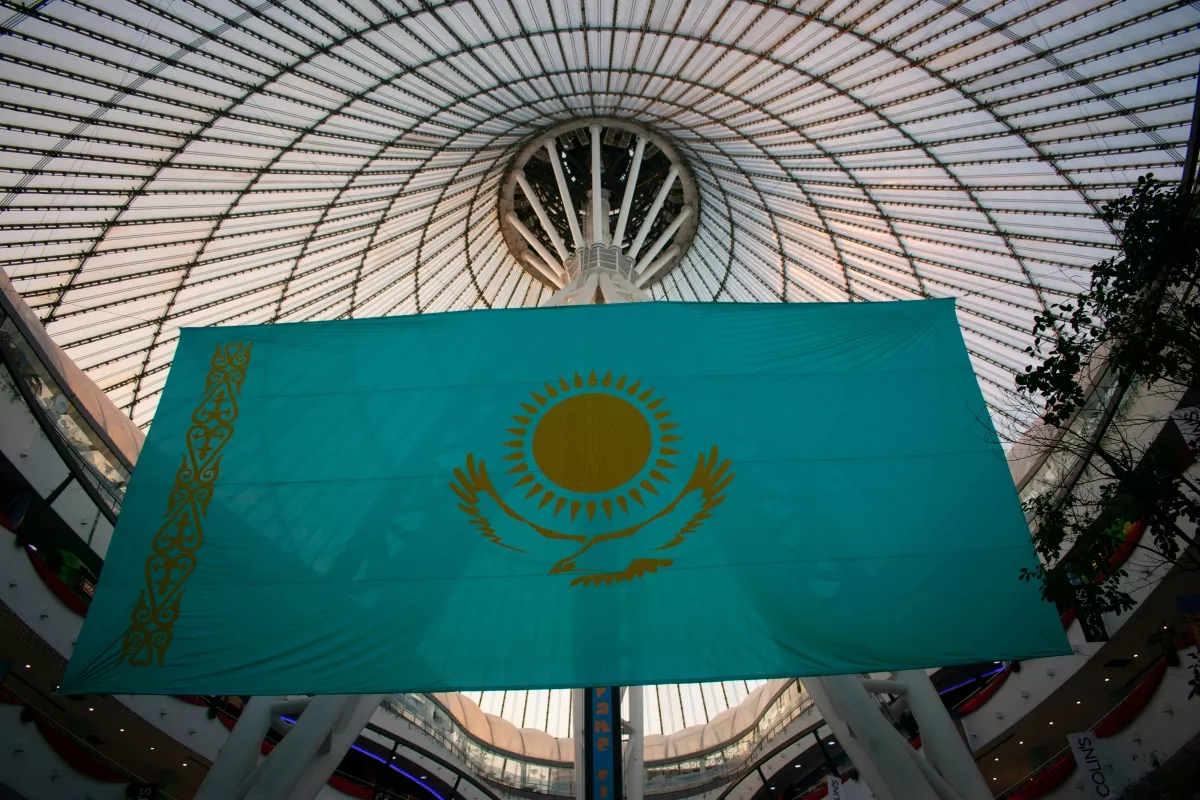
Photo credit: asiasociety.org
As geopolitical divisions shift and rivalry among major powers grows, 'middle powers' are increasingly taking on global leadership roles. At the 2025 Astana International Forum (AIF), Kazakhstan firmly placed itself at the center of this evolving multipolar world order.
With geopolitical fault lines redrawn and great power competition intensifying, ‘middle powers’ are stepping into the global leadership spotlight, The Caspian Post reports citing Euractiv.
At the recent 2025 edition of the Astana International Forum (AIF), Kazakhstan positioned itself squarely at the heart of this emerging multipolar order.
Astana has called for deeper regional cooperation, enhanced investment in connectivity, and a recalibration of global governance. For EU member states, this presents a timely and strategic opening to engage more meaningfully with the region’s largest economy, a critical transit and resource hub between East and West.
Pragmatic ‘middle power’
Speaking to Al Jazeera during the AIF, President Kassym-Jomart Tokayev reaffirmed Kazakhstan’s commitment to multilateralism and reform of the UN Security Council, stressing the need for emerging middle powers to play a greater role in securing global peace and stability.
“Multilateralism is faltering,” Tokayev warned, underlining the current paralysis of established international institutions. “Middle powers should join their efforts to make the United Nations more equitable.”
His message resonates more widely in today’s post-globalist context, highlights Darren G. Spinck, a research fellow at the Henry Jackson Society.
He argues that the collapse of unipolarity - accelerated by the Trump administration’s nationalist pivot and a broader bifurcation of global economic systems - is creating space for countries like Kazakhstan to become influential brokers of economic and geopolitical stability.
“Central Asia is no longer on the periphery of global affairs - it is becoming a central player in shaping what comes next,” Spinck noted.
Opportunities for Europe
Kazakhstan is championing the Trans-Caspian International Transport Route (Middle Corridor) as a competitive alternative to traditional routes passing through Russia. President Tokayev reaffirmed support for multimodal infrastructure spanning China, Central Asia, the Caucasus and Europe via Türkiye.
For the EU, investing in this route aligns with the objectives of the Global Gateway initiative and contributes to strengthening Eurasian supply chains’ resilience.
European development finance institutions could play a pivotal role by helping coordinate public-private investment platforms, particularly as Astana weighs proposals for a dedicated Trans-Caspian Development Bank.
With growing concerns about China’s dominance in critical materials, Kazakhstan’s vast reserves of heavy rare earths, uranium and other strategic minerals offer the EU a reliable, non-aligned alternative to diversify supply chains in support of the green and digital transitions.
European companies are already exploring joint ventures in rare earth processing and mining operations. President Tokayev welcomed further European involvement, pledging transparency, environmental sustainability, and legal safeguards for foreign investors.
As Spinck underscores, no country should be allowed to weaponise supply chains. Strategic cooperation on critical raw materials has now become a shared priority under both the EU’s Raw Materials Act and Kazakhstan’s national development roadmap.
Tokayev struck a pragmatic tone on the country’s energy outlook. While hydrocarbons remain dominant, he reiterated Kazakhstan’s commitment to diversifying, pledging carbon neutrality by 2060 and highlighting renewables and digital technologies as key future growth sectors.
With Astana rapidly emerging as a regional tech hub - IT exports are on the rise and major investments are being made in artificial intelligence and e-governance - there is significant scope for Europe to share its expertise in clean technologies, energy efficiency, and digital governance, accelerating Kazakhstan’s modernisation while unlocking mutually beneficial opportunities.
Balanced engagement
Kazakhstan’s multi-vector foreign policy - anchored in good relations with Russia, China, the EU, the US, and the Gulf states - positions it as a unique interlocutor in an increasingly polarised geopolitical landscape.
The challenge for EU member states lies in translating high-level declarations into concrete bilateral frameworks, particularly in areas such as infrastructure finance, raw material supply chains, education, and innovation.
National governments could follow Italy’s lead and pursue bespoke partnerships with Kazakhstan. The EU-Kazakhstan Enhanced Partnership and Cooperation Agreement provides the scaffolding. It is now up to individual capitals to develop and implement meaningful collaborations.
As middle powers like Kazakhstan rise, Europe knows it must adapt its engagement, moving from rhetoric to strategy. With shared interests in connectivity, resilience, and open markets, the EU stands to benefit from closer ties with Astana, not just as a Central Asian partner, but as an emerging stakeholder in the future of global governance.
If Brussels seeks a multipolar order based on cooperation and rules-based engagement, Kazakhstan is a country to watch and is increasingly seen as an investment destination.
Share on social media